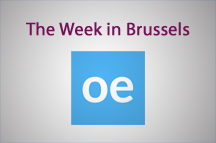 This week, German Foreign Minister Wolfgang Schäuble issued an important signal that Germany was prepared to seriously discuss reform of the EU, something close to Open Europe’s heart, with the new UK government. He even brought up the prospect of Treaty change (after the UK referendum), saying: “We can combine the British position with the urgent need for strengthened governance of the Eurozone”. Schäuble attempts to link his old agenda of a more centralised Eurozone with the reforms the UK is demanding, but either way a majority of Germans support the return of powers from Brussels. Here, we’ve analysed 30 of these potential reforms of the EU against achievability.
This week, German Foreign Minister Wolfgang Schäuble issued an important signal that Germany was prepared to seriously discuss reform of the EU, something close to Open Europe’s heart, with the new UK government. He even brought up the prospect of Treaty change (after the UK referendum), saying: “We can combine the British position with the urgent need for strengthened governance of the Eurozone”. Schäuble attempts to link his old agenda of a more centralised Eurozone with the reforms the UK is demanding, but either way a majority of Germans support the return of powers from Brussels. Here, we’ve analysed 30 of these potential reforms of the EU against achievability.
On Tuesday, EU Better Regulation Commissioner Frans Timmermans presented a package of measures aimed at cutting EU red tape. A key element is the creation of a Regulatory Scrutiny Board, which will have an expanded role in checking the quality of impact assessments of new proposals as well as fitness checks and evaluations of existing legislation – a reform proposed by Open Europe back in 2009. German CDU MEP Markus Pieper has rightly stressed that, nevertheless, this “can make an impact only if the board is 100 per cent independent.”
Furthermore, this week witnessed the unravelling of the EU Commission’s response to the refugee tragedy in the Mediterranean. It’s true that there is an imbalance between Sweden, which is very welcoming to refugees, or Spain and Poland, which close its doors, but what was the Commission thinking when proposing a system whereby member states could be forced to welcome refugees? Of all the policies member states conduct, migration is by far the most sensitive, so logically, France, Poland, Spain, Finland and the Baltics came out against. Also the second leg of the Commission’s approach, to destroy boats used by human smugglers before they are being used, isn’t likely to be implemented, after Libya made clear it won’t give permission. One can only wonder how one would have distinguished smuggler boats from ordinary Libyan fishing boats.
 On the good side, several refugee shelters are to open in Niger for illegal immigrants. As I suggest in this comment, the EU should turn these refugee shelters into proper investment zones, so it’s possible to develop an economy there. The EU has experience with a rule-of-law mission in Kosovo, so this isn’t as far-fetched as it may sound.
On the good side, several refugee shelters are to open in Niger for illegal immigrants. As I suggest in this comment, the EU should turn these refugee shelters into proper investment zones, so it’s possible to develop an economy there. The EU has experience with a rule-of-law mission in Kosovo, so this isn’t as far-fetched as it may sound.
Last but not least, amid the EU Eastern Partnership Summit in Riga, where once again Ukrainian and Georgian attempts to get a firm commitment to enter the EU were thwarted, there was of course the eurocrisis. A rumour was launched that the EU would provide Greece with €4bn of aid in return for VAT reform, while it would be given more time for labour market and pension reforms. This may tilt the Greek crisis over the Summer, after Greece indicated it wouldn’t be able to pay the IMF on 5 June and would in any case give preference to paying Greek pensioners and salaries of civil servants. Then again, a number of considerable payments to the ECB are coming up this Summer for Greece, so it’s unlikely Eurozone policy makers will enjoy a lot of holiday time.














